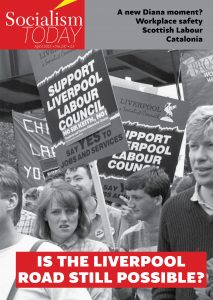The second round of the presidential elections in Peru, which takes place on Sunday 6 June, will see left candidate, Pedro Castillo, line up in a run-off with the right-wing candidate, Keiko Fujimori, daughter of the former dictator Alberto Fujimori.
The first round of the presidential contest was held on April 11, along with elections for the National Congress and the Andean Parliament. The big winner of the day was the left-wing party, Peru Libre, whose presidential candidate, Pedro Castillo, came first, with 2.687 million votes, a 19.1% vote share, in an election with eighteen presidential candidates. His party also came first in the Peruvian Congress poll and in the election of members of the Andean Parliament, with a similar percentage of the vote. Peru Libre will have 28 Congress representatives.
Veronica Mendoza, who as the left-facing Broad Front candidate in the last presidential elections in 2016 received 18.7% of the votes in the first round, now only obtained a poll share of 7.8%, losing 1.76 million votes on her 2016 score. This is the result of her effort not to appear as a ‘radical left’, making declarations to distance herself from Venezuela for example, while making overtures to the business sector. Appearing as too much like the decayed political caste abhorred by her own electorate, Mendoza was abandoned by her supporters. The party she now leads won even less support for its congressional candidates, at just 6.8%.
Read more